What Makes a Great Project Team? 5 Factors for Success
The success of our projects depends in large part on the people we work with – not just our immediate team here at LA London, but the partners and collaborators who take on essential roles on any project.
These roles can vary widely depending on the nature of the work, but those common to most major renovation or construction projects are:
● Architect (including Lead Designer and Principal Designer)
● Interior Designer
● Project Manager
● Quantity Surveyor
● Structural Engineer
● Mechanical and Electrical Engineer
● Main Contractor
Often, one firm or individual will take on multiple roles. For example, we frequently act as project manager as well as lead designer and architect, overseeing collaboration and communication between team members. This experience, along with a comprehensive directory of reliable contacts compiled over several decades, has given us plenty of insight into the factors that make up a great project team.
Here are the top five qualities we look for in a potential collaborator, and how we ensure teams work together successfully for the duration of a project.
1. Experience
Wherever possible, we strive to work with partners who have plenty of experience on a similar project. Ideally, they will even have worked on the same street or in the same postcode. This means they will be familiar with any planning or other statutory restrictions specific to that area, and may have established relationships with local stakeholders.
Experience also comes into play in terms of the team dynamic – we typically prefer to work with collaborators with whom we’ve worked successfully on previous projects, and ideally who have worked with each other too.
When team members have an existing understanding of each other’s approach and processes, as well as have built a level of mutual trust and rapport, they can anticipate potential challenges along the way and work more efficiently towards a successful outcome.
We are aware, however, that the best person for the job may not always be someone we’ve worked with before. When this is the case, we ask for several references and look carefully into a firm’s previous experience before including them in the shortlist of recommendations we put forward to the client.
2. Appropriate resources
Before we recommend a particular firm or individual for a project, we need to be confident that they will have the right resources and team in place to deliver it. This might include the number of staff available and their particular areas of expertise, the quality of tools and equipment, and the efficiency of systems and processes. Useful connections within the industry can also be a factor.
Where a client’s budget is tight, a large firm might have the flexibility and scale to deliver solutions without the risk of going over budget. On the other hand, a smaller company may be able to work with greater agility and speed, without having to comply with the lengthy processes and protocols that sometimes come into play in a large organisation.
Big is not necessarily better, therefore, and we take various considerations into account when we draw up a longlist of recommendations.
3. High standards
Whether it’s an apartment at One Hyde Park or a mansion in Surrey, the projects we undertake come with a high level of prestige and expectation. We therefore choose partners who understand the standards expected by both us and our clients.
There are many choices and decisions to be made during any high-end renovation project, and we can save time by working with firms and consultants who recognise that only premium materials, finishes and fittings will be acceptable and know not to waste our time with proposals that may be poor quality, unattractive or lacking in sustainability credentials.
For standout design features, such as the exceptional stone staircase at Camp End Manor, we are fortunate to have established relationships with some world’s finest artisans and craftspeople.
4. A constructive and collaborative approach
Inevitably, challenges will always arise during a project and we strive to work with partners who support each other in overcoming these, rather than shirking responsibility or pointing fingers. In these instances, whether we’re acting as project manager, lead designer or a combination of the two, we often find ourselves in the role of mediators, using our wealth of experience to improve communication and navigate a way through the challenges to a swift solution.
We have also been approached to replace an architect on an established project on a number of occasions, rescuing a project that has faltered. These projects have repeatedly shown us how important clear and transparent communication is for effective collaboration; almost always we can trace the issues these projects are experiencing back to a breakdown in communication at some point.
‘Lessons learnt’ debriefs at the end of each project also allow us to collaboratively discuss key challenges we encountered as a team and explore how we might work together more effectively to anticipate and prevent these on future projects.
5. A positive personal relationship
Positive personal relationships are essential to any successful professional collaboration. When we get to know our teammates on a personal level, we inevitably all feel more accountable and responsible to each other. Understanding each other’s sense of humour and personality traits also allows us to communicate more openly and effectively.
For this reason, we have host regular project team social evenings, which are typically held on our roof terrace. These socials usually take place at the beginning and mid-way through any project, allowing team members to get to know each other over a few beers and a barbecue, rather than solely through emails and video calls. Below are some highlights from this year’s!


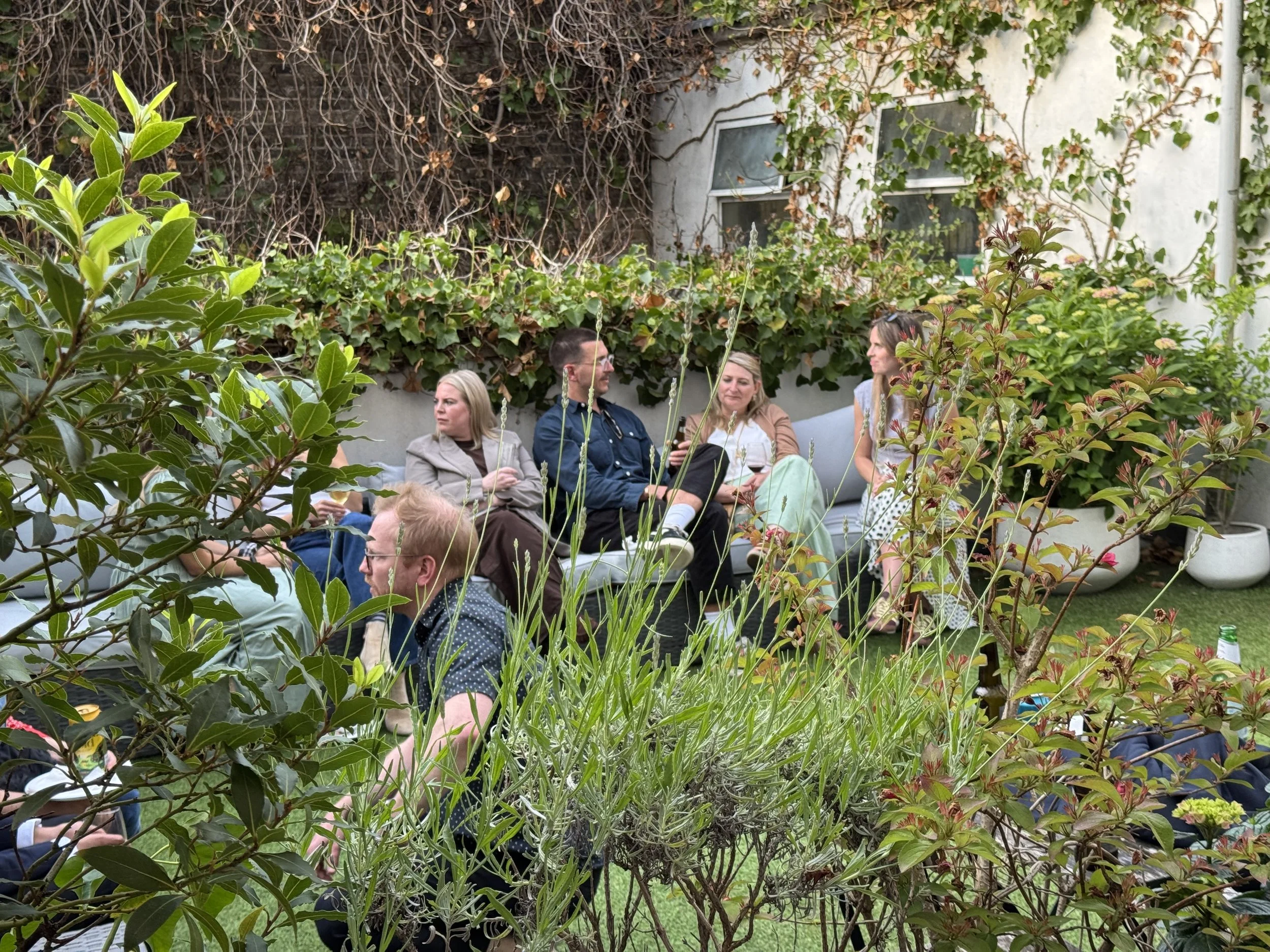











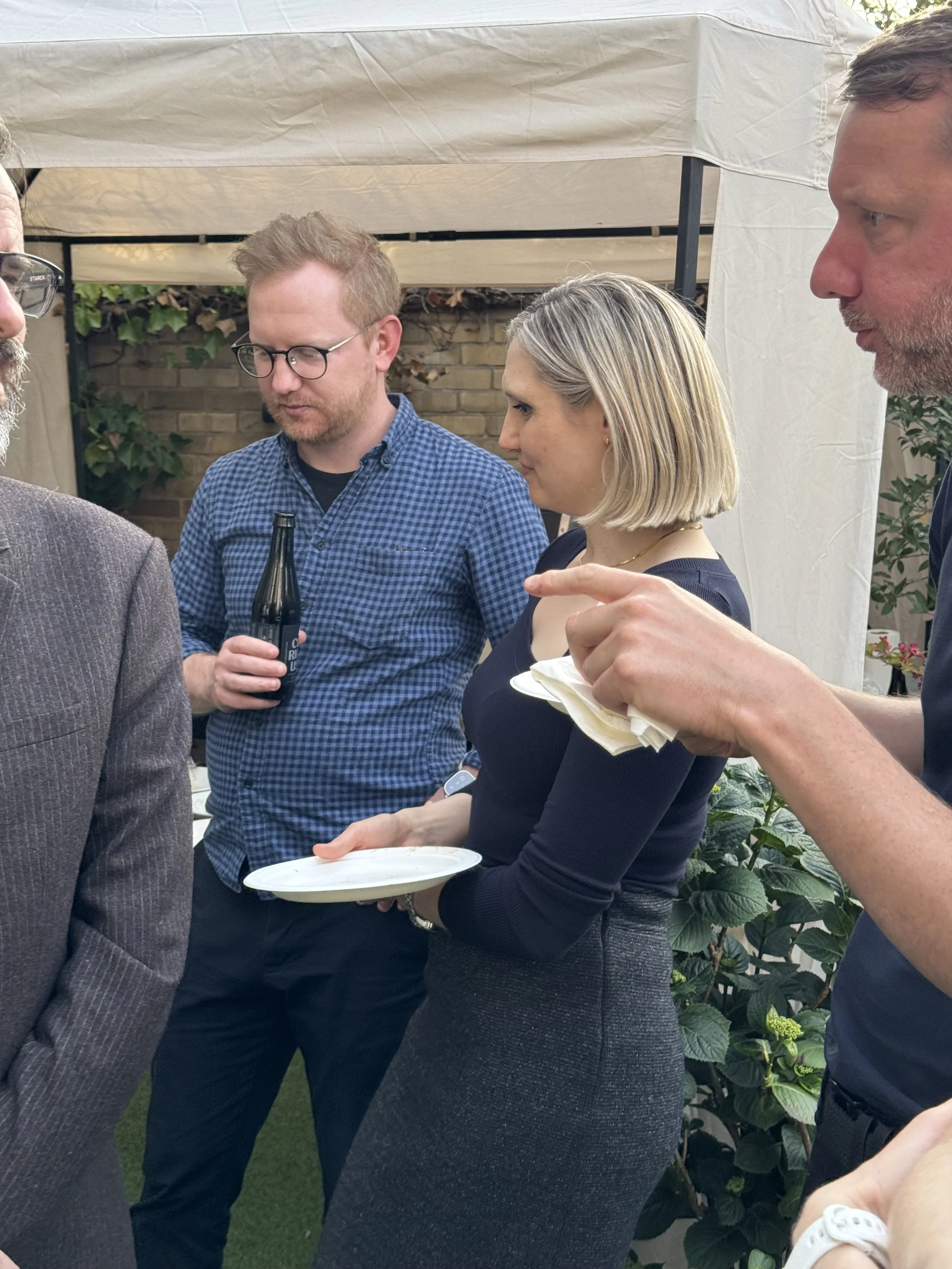
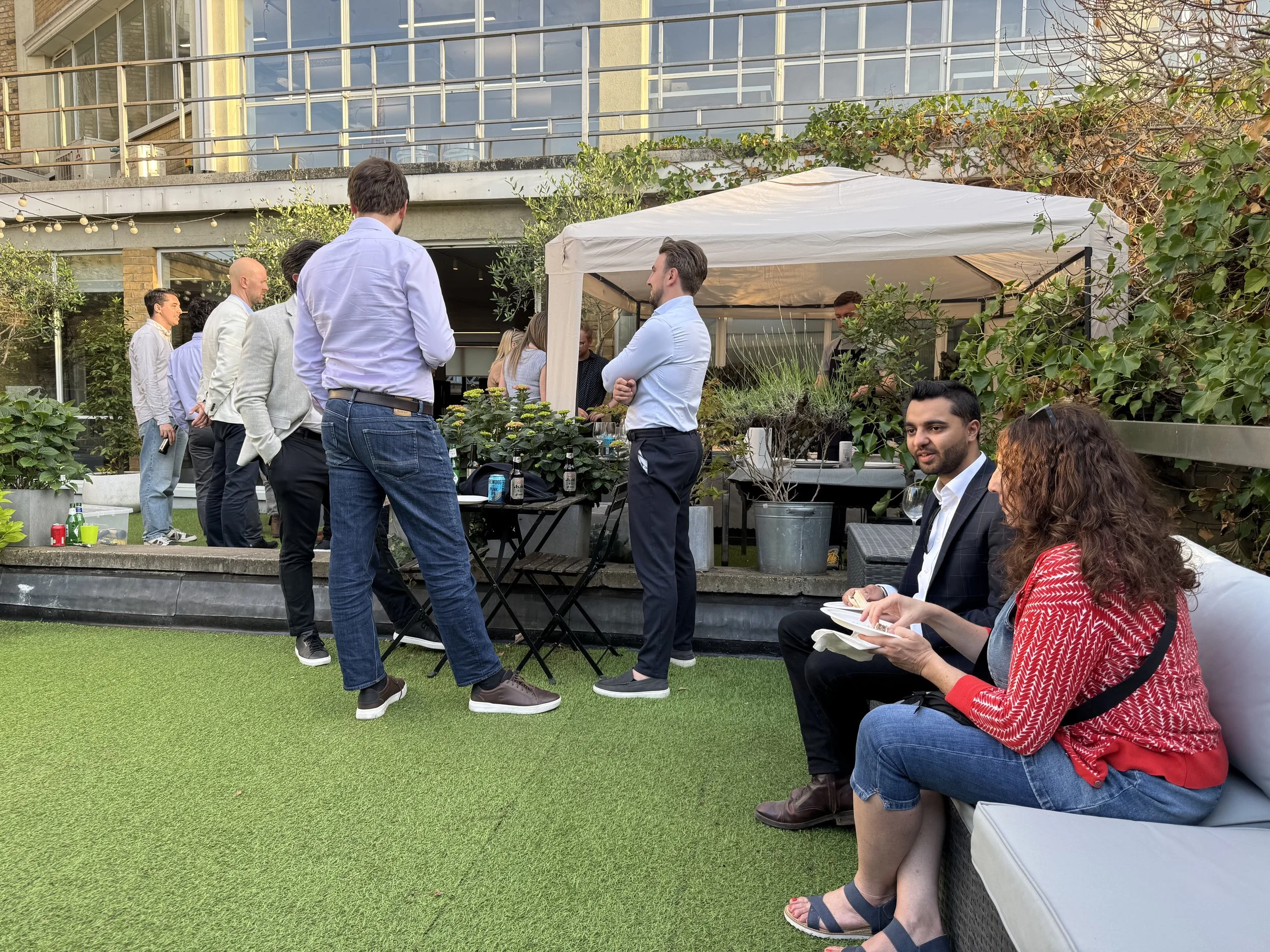


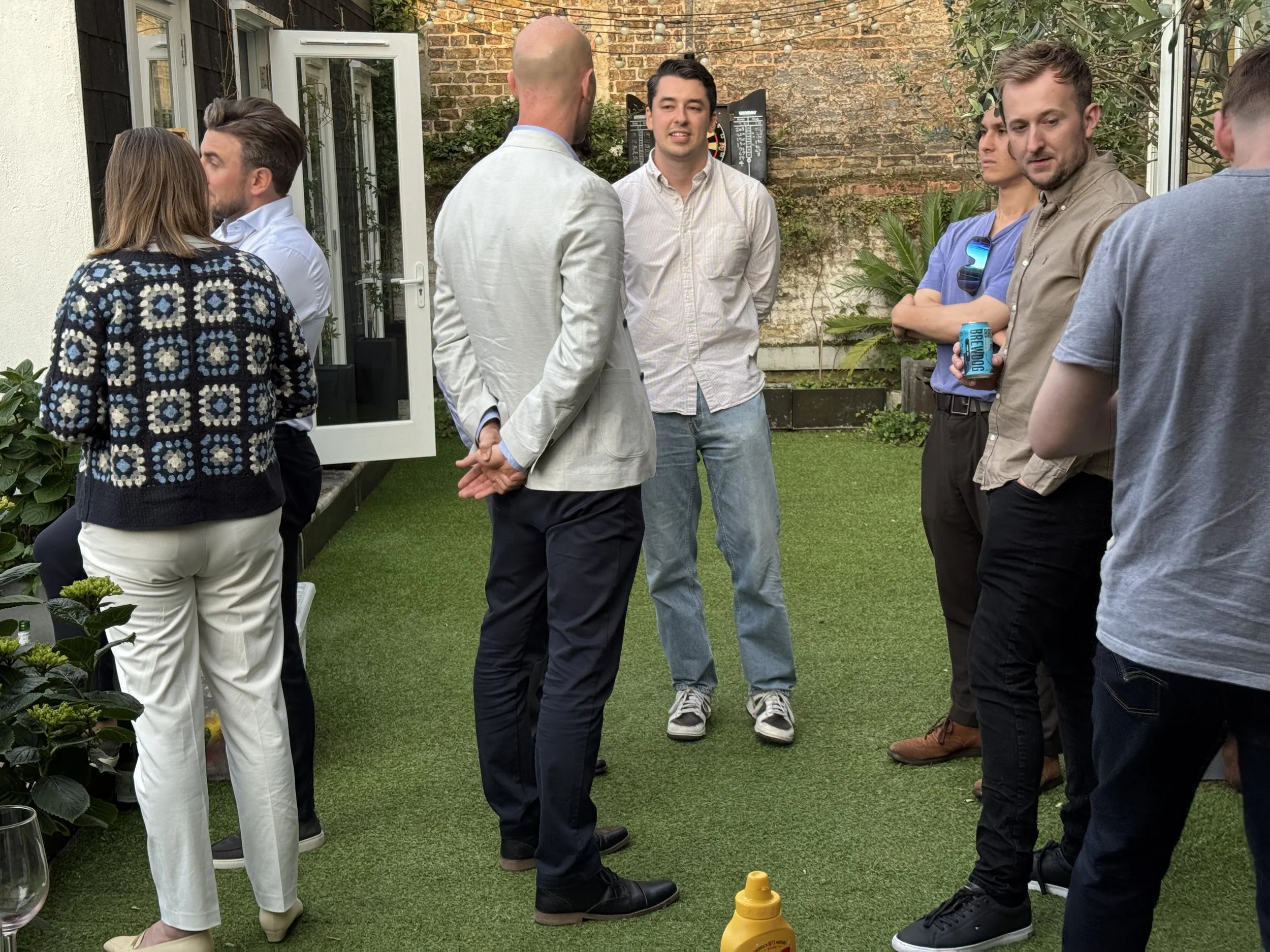
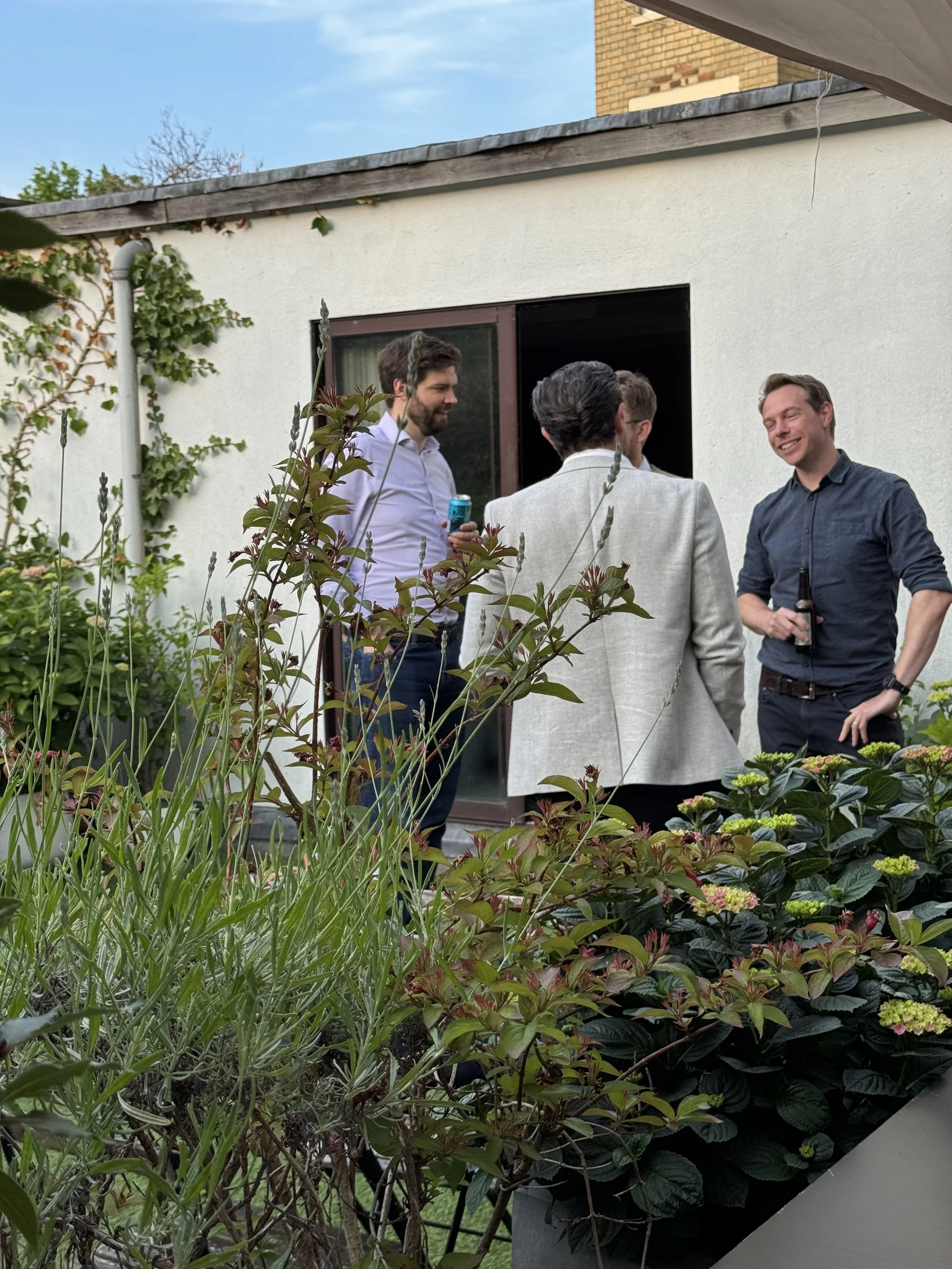

Sharing personal passions and family news, or connecting over the latest football results, allows us to step outside of our formal, professional personas and build a more meaningful connection with our collaborators. This in turn encourages us all to go the extra mile on behalf of each other and drive our project through to a successful outcome.
LA London operates in the high-end residential, retail, commercial and hospitality sectors, working with an extensive network of trusted partners and collaborators both in the UK and overseas. If you’re looking for advice on a forthcoming project, please get in touch for a preliminary consultation.



